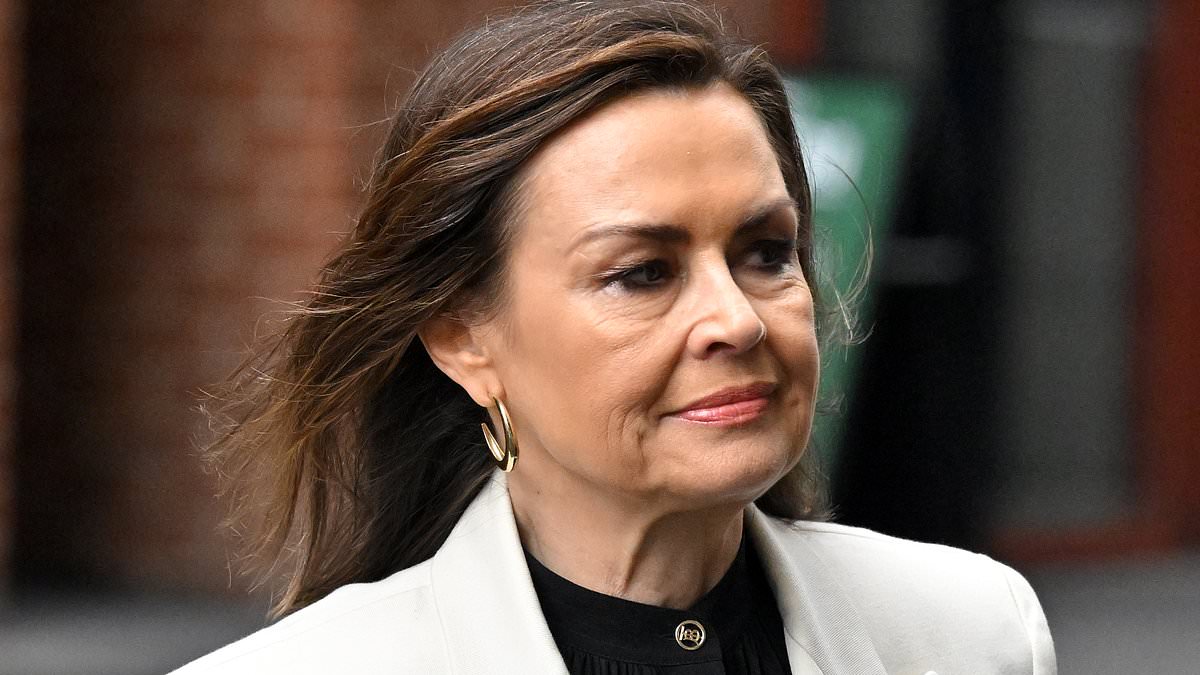Journalist Lisa Wilkinson and Network Ten were trying to fabricate a ‘whodunnit’ and boost ratings by not identifying Bruce Lehrmann as an alleged rapist, his lawyer has argued.
The former federal political staffer – dubbed a ‘national joke’ by his lawyer on Wednesday – is appealing a civil court finding he raped his colleague Brittany Higgins in parliament house in 2019.
The bruising judgment came in April 2024 after Lehrmann sued Ten and Wilkinson for defamation over an interview with Ms Higgins in which she aired the allegations.
He was not named in the 2021 broadcast, which Wilkinson has claimed is evidence of how she and Ten acted responsibly when publishing such a serious allegation.
But Lehrmann’s lawyer contended he wasn’t identified because of a plan to provoke a ‘buzz’ of public scrutiny around the identity of Ms Higgins’ alleged assailant.
‘(It is) viewed as a crafted strategy to maximise the ratings of a story, to achieve an exciting air of mystery akin to a “whodunnit”,’ Zali Burrows claimed in written submissions for Lehrmann’s Federal Court appeal.
The ‘disingenuous’ approach arguably highlighted the ‘sensationalism of a complex plot-driven story involving political scandal cover-up of a rape in parliament,’ she wrote.
‘Although Mr Lehrmann was not specifically named in the program, a sophisticated journalist would be aware when providing enough indica (sic) as to the identity of Mr Lehrmann, is teasing the viewer and inviting greater public engagement and promotion of the story,’ Ms Burrows submitted.
The trial judge, Federal Court Justice Michael Lee, determined Lehrmann had been identified as the perpetrator of the assault by some viewers, but Wilkinson argues their number was small.
Ms Burrows took aim at Wilkinson’s defence that she had relied on advice from Ten’s legal counsel when preparing the broadcast and a subsequent Logies speech.
The journalist was heavily criticised for making the speech in 2022 about Ms Higgins’ allegations, which prompted a decision to delay Lehrmann’s criminal trial by three months.
The trial was later abandoned with no findings against Lehrmann.
Wilkinson’s speech had been given the green light by Ten’s lawyers, the court has been told.
But that argument raised the question of whether it was reasonable ‘to rely upon legal advice (which) in the face of it is plainly wrong’, Ms Burrows wrote.
‘(The defence) raises the proposition, if a lawyer tells you that you can run a red light, would you do it?’ she asked.
‘With respect to Ms Wilkinson, a sophisticated highly intelligent and experienced journalist, it appears disingenuous to claim that she would follow the advice of lawyers, notwithstanding it was obviously bad advice.’
Justice Lee found the journalist and Ten had acted unreasonably in broadcasting the allegation, in part because they were entwined with claims of a parliamentary cover-up.
Ms Higgins claimed she had reported the rape to her superiors at parliament house including her boss, then-senator Linda Reynolds, but little action was taken.
But Ms Chrysanthou argued the alleged cover-up should have been considered separately from Ms Higgins’ account of sexual assault, because it was not connected to Lehrmann.
‘His Honour was distracted by the so-called cover-up when he should have focused on the rape,’ she said.
The broadcast did not allege there had been a ‘cover-up’ but rather referred to ‘roadblocks to a police investigation’, Ms Chrysanthou told the appeal court.
Wilkinson and Ten urged the court to uphold Justice Lee’s findings that Lehrmann had likely raped Ms Higgins.
Among his four grounds of appeal, Lehrmann challenged the definition of rape employed by Justice Lee, contending it was inconsistent with the meaning an ordinary person would understand.
He maintains he did not sexually assault Ms Higgins.
Lehrmann’s appeal hearing had been set down for three days but it finished a day early on Thursday.
The appeal judges will hand down their decision at a later date.
Lehrmann did not comment as he left the courthouse flanked by Ms Burrows.
